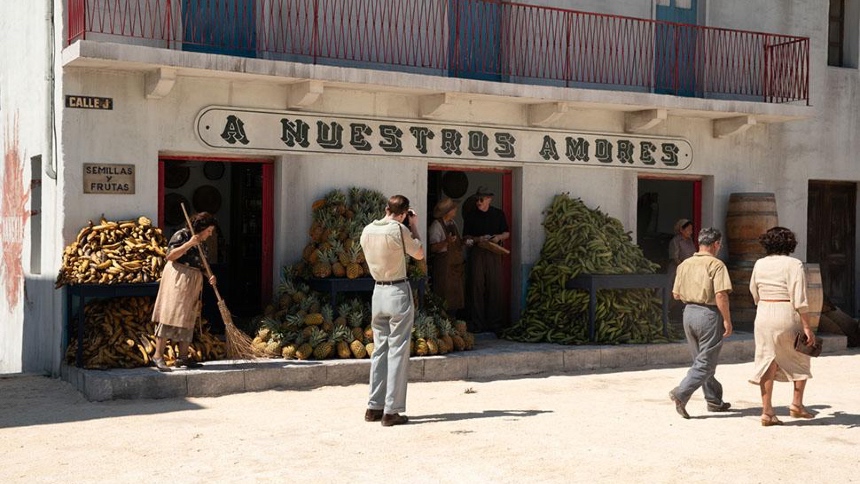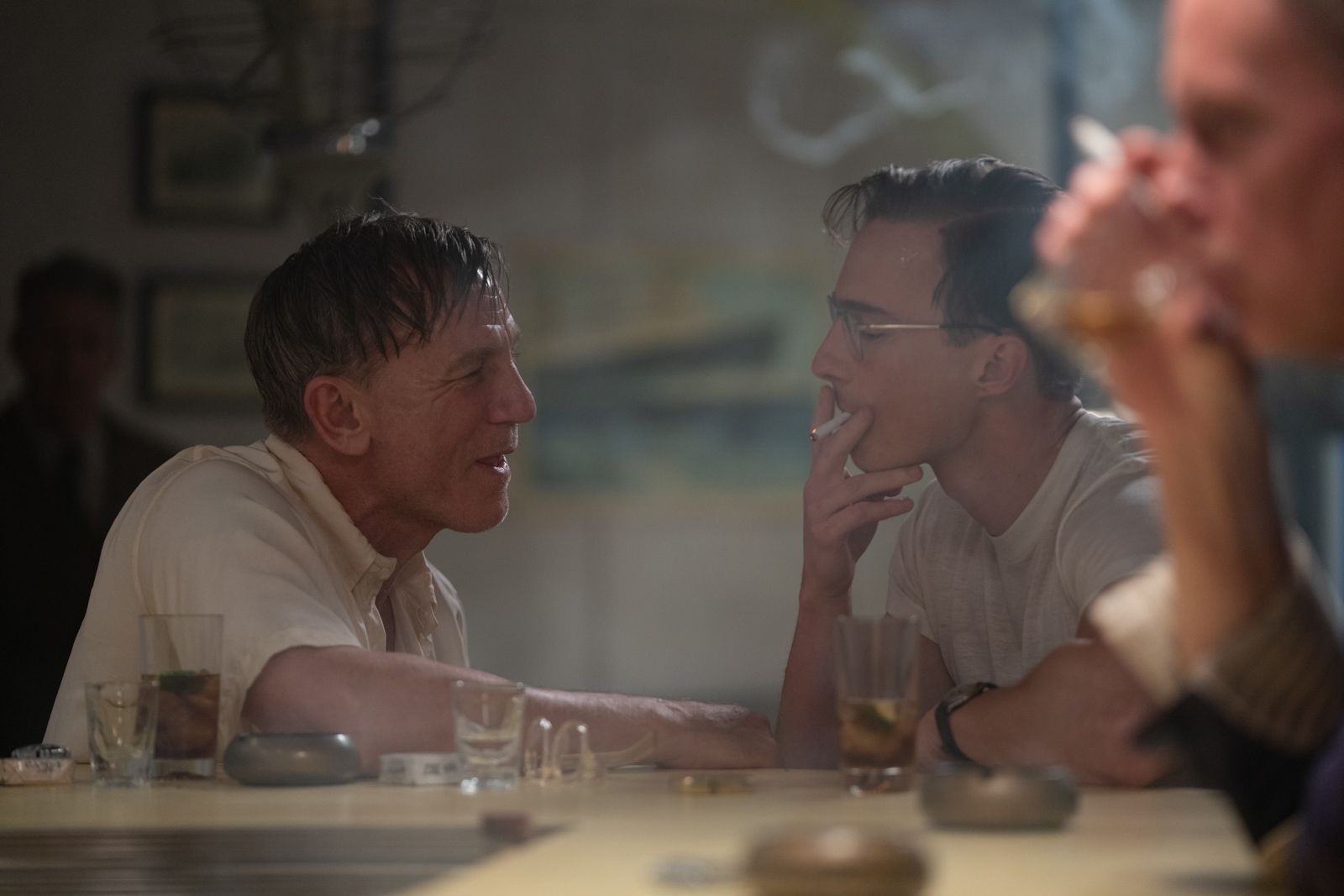Venice 2024 Review: QUEER Hypersexualizes William S. Burroughs' Semiautobiography
For his eagerness, Daniel Craig gets a pass taking on another gay role.

The moment a Venice Film Festival press/industry screening of Luca Guadagnino's Queer was over, the man sitting directly behind me let out a loud "booooooooo." He may be shooting the messenger, though.
My guess is he's never read the short novel by William S. Burroughs that serves as its basis. While one can't say Guadagnino's visualization has been entirely faithful, he does reflect the spirit of the source material, even as the film plunges into a very Lynchian/Cronenbergian deep end. It's a respectable adaptation. To be sure, the novel itself leaves readers unsatisfied, and in that regard this rendition is pretty on the nose.
The semiautobiographical Queer is a thinly-veiled account of the fraught relationship between Adelbert Lewis Marker and Burroughs himself, who maintained his heterosexuality in life much like Mr. Garrison during early seasons of South Park. The novel is rife with self-loathing that never lets up, which sums up the film adaption as well.
Daniel Craig plays Lee, Burroughs' proxy, a chicken hawk sporting a white shirt, khaki pants, and a fedora covering his Bill Gates haircut, perpetually on the prowl in the streets of 1950s' Mexico City, an apparent haven for any gay gringo with an unchecked colonialist mindset. He is presumptuous about the receptiveness of his prey, brazenly acting on his gaydar and unbothered by prospects of bashers. He uses "Why so sad?" as a pickup line and then proceeds to take advantage of the vulnerable and naive. Kevin Spacey is truly missing out on a role he was born to play.
When he first lays eyes on Gene (Drew Starkey), who seems like a younger version of himself, Lee foregoes his usual gambit. He is clearly smitten and takes the time to tread carefully. While the young man isn't initially responsive to Lee's flagrant signals, he doesn't rebuff them either. When Lee finally lures Gene to his den and goes down on him, Gene readily reciprocates. The explicitness seems a bit gratuitous here, considering that descriptions in the book are so tame.
With Gene in the bag, Lee becomes insufferably insecure and clingy. He is jealous of Gene being in the company of others. To make matters worse, Gene runs hot and cold. He doesn't always humor Lee beyond perfunctory greetings.
Lee wallows in self-pity, which is pathetic considering his prior sexual exploits. But the film is more preoccupied with his pain than all the collateral damage left in his wake. In a bid to isolate Gene, Lee proposes they travel through South America to search for yage, a substance that supposedly induces telepathy. They very rarely seem happy together. Lee has Gene all to himself, yet Gene's heart still eludes him.
As the film progresses, Lee increasingly experiences drug-addled nightmares. Guadagnino illustrates these mostly as David Lynch would, with some truly cryptic and inexplicable visions, such as Gene putting a glass on his head, and Lee aiming a gun at the glass but ending up shooting Gene in the head.
There are also elements of David Cronenberg's body horror, such as the sight of a legless nude woman. Then there is the choreographed dance sequence in which Lee and Gene's bodies fuse together from time to time. These choices seem perfectly sensible, what with Cronenberg's own cultish take on Naked Lunch.
Guadagnino also interjects his own artistic flourishes, layering two different actions within the same setting to illustrate inner thoughts and desires. Lee and Gene are watching a film in the scene, and the overlapping image projects Lee's wishing to caress Gene's face.
Having acted in Love Is the Devil, and in light of the recent Benoit-Blanc-is-gay discourse, Craig is skirting dangerously close to Stanley Tucci's level of obtuseness in repeatedly taking on gay roles. (Incidentally, Tucci of all people performed a reading at the 2010 Sarasota Film Festival for a scrapped adaption of Queer, written by Oren Moverman and set to be directed by Steve Buscemi.)
In Craig's defense, he is at minimum not bashful or prudish about nudity or simulated gay sex. A legitimate gripe about straight actors taking gay roles is their prevalent aversion to intimate scenes, rendering so many gay films completely sexless and thus failing to normalize gay sex in popular culture. With his daring performances in Love Is the Devil and this, Craig gets a well-earned pass. It's also somewhat poetic that the prey from Love Is the Devil has evolved to become a predator in Queer.
Ironically, the performance that stands out in Queer comes from Lesley Manville as the cishet woman Dr. Cotter, who has been researching yage. As opposed to her turn in another Venice selection, Disclaimer, she seems to be having a blast playing against type as a jungle woman.
From the gay bars in Mexico City to the jungles of Quito, Lee's quest for a remedy to end his misery comes up empty. Sexual conquests, drugs, a special someone and the mythical yage -- nothing seems to work. He lacks the introspection to realize that he and his narcissistic and self-destructive ways are the problem.
I doubt even Burroughs himself had worked this out at publication - some three decades after he had written it - as the title implies queerness is to blame since the story has less and less to do with queerness as it progresses. Guadagnino could have exercised some artistic license here, so we can only assume he concurs.
The film enjoyed its world premiere at the Venice International Film Festival. Visit the official festival site for more information.









